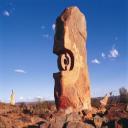Yahoo Answers is shutting down on May 4th, 2021 (Eastern Time) and beginning April 20th, 2021 (Eastern Time) the Yahoo Answers website will be in read-only mode. There will be no changes to other Yahoo properties or services, or your Yahoo account. You can find more information about the Yahoo Answers shutdown and how to download your data on this help page.
Trending News
Why do scientists believe that the universe had "a beginning?" Is this just a conclusion based on observation?
I'm of the opinion that the universe is perpetually recurring, so to say that the universe had "a beginning," seems to promote other theories that are either more easily understood, or is intended to promote a particular viewpoint that is more desirable for society to hold.
It's not completely unheard of for scientists to be dishonest and/or promote a particular conclusion that is based on a hypothesis with all of the evidence available, even in the face so many unanswered questions as to how the universe functions.
Thank you, in advance, for your answers.
12 Answers
- ElizabethLv 74 years ago
Yes, it's a conclusion based on observation. But there are two different strands that match together very well.
When we look at our universe today we see things like atoms made up of protons and neutrons and electrons. We see that particles have mass. We see forces of nature like gravity and electromagnetism and nuclear forces. But we also know, from our experiments in particle accelerators, like the Large Hadron Collider in CERN, that these particles and forces are made up of constituent parts. We know, for example, that protons and neutrons are made up of quarks. We know that the mass of particles is related to the Higgs boson. We know that electromagnetism and nuclear forces start to appear similar when we look at the interactions between particles with very high energies.
In other words, in order to explain why we see the universe having the properties it does today, we need to conclude that it was in a very high energy state earlier in its life. What we're seeing today is the 'cooled' version of the universe. The 'hot version' gave us the building blocks.
This matches very well with the conclusions astronomers and physicists have made by observing distant galaxies. We know that the universe is expanding and that means it was smaller in the past. We also know that if the universe was smaller, it was hotter. And if we wind the clock back, the conclusion we can reach is that the universe as we know it started in a small, dense, hot state. That matches what the particle accelerators tell us too.
- PhilomelLv 74 years ago
These are Scientists / Mathematicians. They cannot imagine anything without a beginning.
- SciencenutLv 74 years ago
There is observable evidence that the Universe was once 'young', and is now 'older'. For instance,
-So called 'old' Population II stars of the globular clusters formed over 13 Billion years ago, and have little or no 'metalicity', while the much younger Population I stars of the galactic disk have much greater metalicity, like our Sun, implying an increase in metal content over time.
-Our Universe had plentiful quasars in its youth, but now has nearly none. This implies that quasars evolve and burn out into something else, probably black holes, as time progresses.
-If you measure any random galaxy for its distance as well as its velocity, and then extrapolate backwards, you will find that every such galaxy will be found to be in our own vicinity some 13.8Billion years ago, indicating that everything was once all in one place, and is now slowly and uniformly spreading out with time.
-observations of the most distant galaxies (and therefore youthful) are not nearly as well formed as those (old ones) nearby us, once again implying a progression from youth to present day (old) appearance.
It can be concluded that our Universe is not in any sort of a 'steady state', and is in fact growing older with time. And it is very hard to imagine that something that is growing older did not once have a beginning, probably ~13.8Billion years ago.
- Brigalow BlokeLv 74 years ago
The big bang theory is about the origin of the bits of the Universe that we see. Of course it is based on experiments and millions of observations and measurements, on which all actual scientific theories are based, it also made a prediction which was tested and found to be true. Anything else would be mere speculation or at best hypothesis.
It is NOT, repeat NOT about the origin of the Universe, if there was such a thing. Asking what happened before the big bang is meaningless if there was no "before" and cannot be answered if the big bang itself wiped out all traces of what had happened before. One may produce informed guesses but that's all.
"It's not completely unheard of for scientists to be dishonest and/or promote a particular conclusion that is based on a hypothesis with all of the evidence available, even in the face so many unanswered questions as to how the universe functions."
Would you care to give several examples of this? I'm very aware of the Piltdown case. The conclusion by Smith Woodward and a few others that the finds from three sites near Piltdown were some kind of early hominid were disputed by at least half a dozen people who were qualified to have an opinion before 1920. And what are these unanswered questions? Are you sure that they have not been answered, or can be answered?
To sustain claims that the BB theory or several other theories and facts are dishonest constructs desired by some people for society to hold is just plain bizarre, but it is an argument frequently encountered from people who see conspiracies behind everything they don't like. For examples, the age of the Earth, biological evolution and global warming.
In relation to current cosmological theories, it makes the assumption that tens of thousands of astronomers, physicists, even geologists etc. in dozens of countries around the world have been seriously mistaken or lying over several decades. It also requires that all these scientists hold more or less uniform political, philosophical and even religious views and backgrounds. This might have worked before 1930 or earlier when virtually all scientists were European or American but it doesn't when they are Indian, Japanese, Chinese etc. as well. And it does not work when the theory is consistent with distantly related branches of science either.
- How do you think about the answers? You can sign in to vote the answer.
- Satan ClawsLv 74 years ago
<QUOTE>I'm of the opinion that the universe is perpetually recurring,</QUOTE>
An opinion counts for little unless you have evidence supporting it (otherwise you'll be sent to the dinner table with the string theorists).
So. What is your explanation for the Hubble flow? How do you interpret the low initial entropy? How do you model the CMBR and the primordial element abundance? You know -- stuff like that?
<QUOTE>It's not completely unheard of for scientists to be dishonest and/or promote a particular conclusion</QUOTE>
It's also quite common for non-scientists to use the Internet to promote the view of "my ignorant opinion is worth as much as your expert opinion".
Hey, it comes with the territory. It sure it's easier to have an opinion than to spend four years learning enough of the basic to find out how to dig up the information. But then you have to explain to the other people who didn't bother (because there are more important things to do in life!) about things that have no impact on their daily lives and that they'll forget about Monday morning. http://youtu.be/0KmimDq4cSU#t=7m00s
- ?Lv 64 years ago
You are right in saying that there are so many unanswered questions. To be realistic , humans need thousands and more years to even begin to understand the enormous universe. What has been discovered in the last 100 years has been great but has resulted in even more questions . Did the universe have a beginning ? In a human life span on earth we see that many things around us have a beginning and an end. Human life itself is only short and all other living things like animals and plants have a beginning and an end. That is what we can see and it is what seems natural. There is a sadness of not being able to enjoy life without trouble and sickness and for life to be so short. I always wondered if there is more to life and found a great website that answers all my questions. Please follow the link.
- RaymondLv 74 years ago
We have to use precise wording:
Most scientists believe the Observable Universe has a beginning 13.8 billion years ago. Before that, the conditions were such that we do not understand (at all) how things work. Therefore, 13.8 billion years ago marks the beginning of whatever is out there that we understand (the Observable Universe).
The "recurring universe" (called the Cyclic universe) was a nice idea that the universe is a series of expansions following by contractions; the present cycle have started 13.8 billion years ago.
However, that idea was finally dropped by everyone when it was found that the rate of expansion keeps increasing (much to everyone's surprise). Therefore, IF (a big if) the universe is cyclic, we'd have to explain why this is the last cycle.
Also, if the present cycle contains enough energy to prevent closure of the next cycle, where did that energy come from? Why did it not show up in earlier cycles?
Therefore, dropping the cyclic universe was not to promote other theories (there are none, really), but to account for the fact that observations show that a cyclic universe is either impossible, or comes to an end (both of which make no logical sense).
Society does not care about cosmology (except, of course, for cosmologists). In fact, most people in the non-scientific community are still going with the idea that some magical entity "created" the universe out of... nothing.
That is why it is important to note that the only theory that is (so far) supported by evidence -- the theory with the awful nickname Big Bang - came from a priest. All that theory does is to describe the interaction between the expansion of space and the energy content of the universe:
Same amount of energy + more space to spread it out = the energy density goes down with time.
The Big Bang theory cannot be used before a moment called the Planck Time (13.8 billion years ago) which marks the beginning of the universe "as we perceive it" (the Observable Universe). We cannot understand (yet) anything that could have existed before, because we don't even understand how time itself flowed "before" the Planck Time (this makes it impossible to use the word "before" when applied to that moment).
The Big Bang theory does not forbid a cyclic universe (and that is why the theory of the Cyclic universe could exist alongside the Big Bang theory - they did not contradict each other). If anything, the Big Bang theory only explains the behavior of the universe during the present cycle.
The Planck Time would then mark the "beginning" of the present cycle.
But the cyclic universe was dropped for reasons other than the Big Bang theory. It was dropped because observations show that the universe cannot collapse and spring back into a new cycle.
- Anonymous4 years ago
because some of them are wise enough to know what's written in Scripture is true..............the one's who don't believe are correctly referred to as scientwists
- Donut TimLv 74 years ago
They don't.
There is no evidence for or against the universe having an infinitely long past. Physicists and philosophers remain unsure about what, if anything preceded the Big Bang. Many refuse to speculate, doubting that information from any such prior state could ever be accessible.
(One should not confuse a possible origin of the universe with the big bang. The big bang is the “expansion” of the universe and is still visibly in progress. Evidence indicates that the present expansion had a start. Sometimes the phrase big bang is used to mean the “start” of the expansion.)








